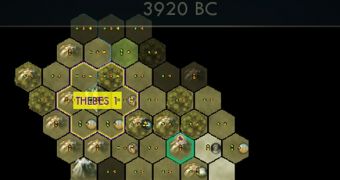There are more games of Civilization V I have abandoned than I've completed in the time I spend with the new turn based strategy from Firaxis. I so far won a scientific victory in my second game, using Catherine and her resource exploiting abilities, a military victory using the Germans and their tanks and I am on my way to another scientific win using the monument building Egyptians.
I am also trying very hard to push for a culture based victory, reaching Utopia with the Napoleon led French, who seem to be the best suited to this kind of endeavor.
And, starting and restarting Civilization V with different civs and settings as much as three times in a day, I discovered a joy that comes with the blank slate, with seeing the small spot of uncovered map occupied by only one settler and one warrior, ready to begin a epic trek through the ages that can take them to space or land them in a dystopian future where a cold and militaristic regime dominates entire continents.
It's one of the biggest differences between the kind of strategy titles that Firaxis and other create and the more mainstream offerings of the video game medium.
When I play Call of Duty or Halo: Reach restarting is a sign of defeat, of having not been good enough on the battlefield to die or to put myself in such a tough situation that I need to go back and play (the level or the game) again to succeed.
When I play Civilization and I quit and restart I do it because there are so many new possibilities that are opened up and so many surprises that the video game has to offer in the first fifty or so turns, from the location where the player begins to where city states are and what civilizations are near.
A little thing called path dependency limits choices as history marches on and makes the game somewhat less exciting, even though there are plenty of challenges to tackle and possibilities to evolve my civilization.
So, for now, I am content to start over even if I rarely see the Atomic Age and the Giant Death Robots.

 14 DAY TRIAL //
14 DAY TRIAL //